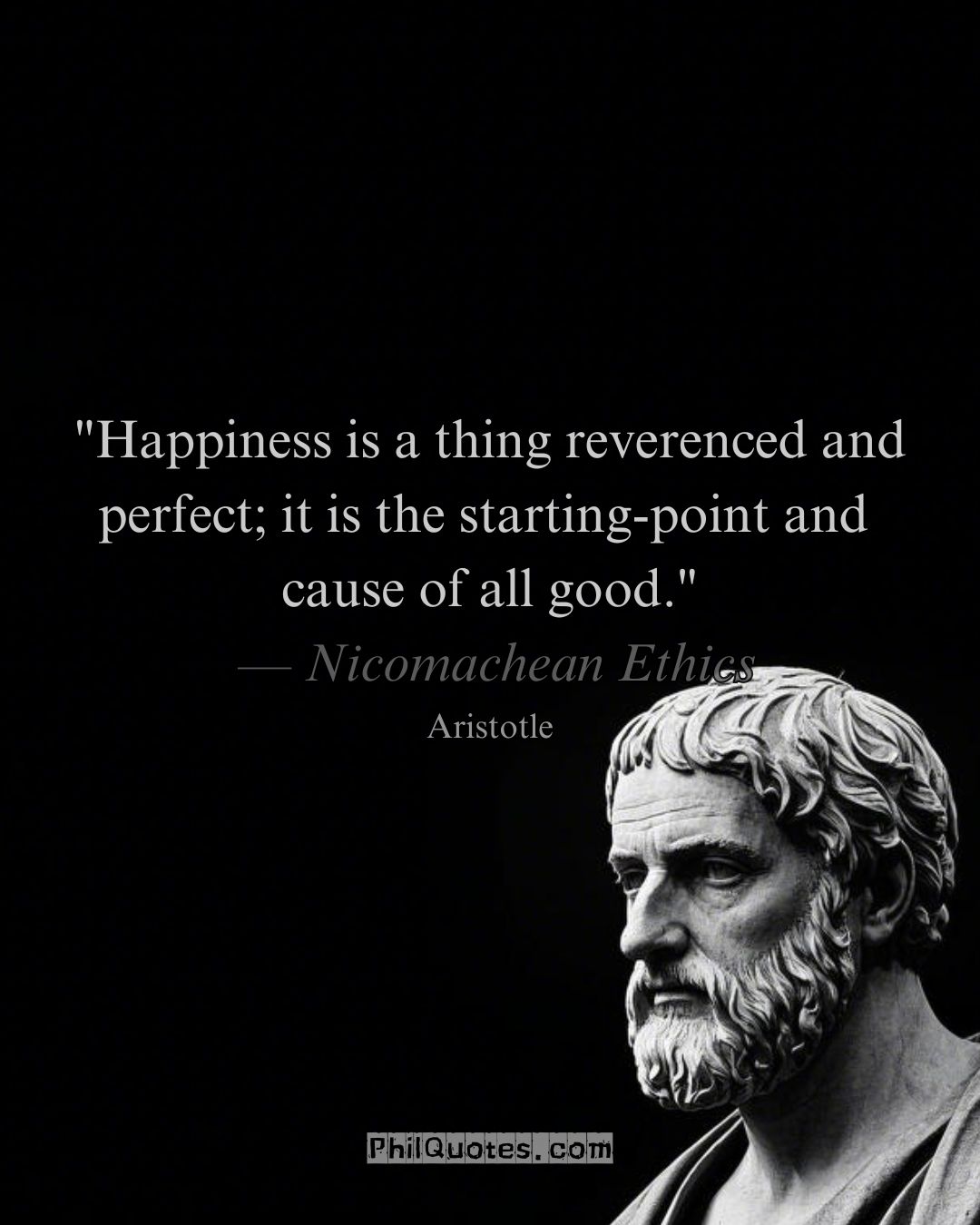
“Happiness is a thing reverenced and perfect; it is the starting-point and cause of all good.”
— Aristotle, Nicomachean Ethics, Book I, Chapter 12
Explanation:
Aristotle elevates eudaimonia (true happiness) as the ethical sun — a sacred, self-sufficient force that illuminates and nourishes all other virtues. Just as sunlight enables ecosystems to thrive, happiness radiates moral energy that animates justice, courage, and wisdom in human society.
Real-World Connection:
① Corporate Ethics →
A company prioritizes employee well-being (happiness as starting-point) → cultivates trust (organizational good) → drives sustainable innovation (industry-wide good) → proves happiness as profit’s ethical engine.
② Education Reform →
Schools teach emotional resilience (nurture inner joy) → reduce classroom conflict (social good) → inspire civic-minded graduates (generational good) → show happiness as societal root system.
③ The Hidden Physics →
- Reverenced Core: Happiness’s sacred status demands daily rituals (gratitude, reflection)
- Perfect Circulation: Like a heart pumping blood, happiness distributes virtue to all life’s organs (family, work, community)
- Causal Power: Every act of kindness traces back to an individual’s commitment to self-actualizing joy